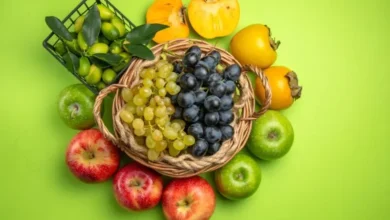Harvard professor claims organic foods are not healthier than conventional ones

Organic foods have long been considered healthier than non-organic alternatives, with several studies claiming they come with additional health benefits and can help prevent various diseases, but is that really the case?
Robert Pahlberg, a professor at the Sustainability Science Program at Harvard University, claims that no reliable evidence suggests that organic foods are healthier than conventional produce.
According to Pahlberg, using smaller amounts of pesticides in organic farming may not necessarily have an impact on health.
“There is no reliable evidence to show that organically grown foods are more nutritious or safer to eat. If we follow the science, organic foods lose their clear advantage,” said Pahlberg.

(Shutterstock)
He cited a 2012 Stanford University review of 237 studies on organic foods that found no convincing differences in nutrients or health benefits between organic and conventional foods.
The main difference between the two was that organic foods contained fewer pesticides.
Though organic farming also uses pesticides, the USDA permits mostly natural sources like copper and sulfur, while conventional products can use synthetic pesticides.
However, organic farmers are still restricted from accessing 25 synthetic pesticides while conventional agriculture can use over 900 pesticides.

(Shutterstock)
Pahlberg notes that there are no health benefits to banning synthetic pesticides from organic foods, as pesticide use is highly regulated in conventional agriculture, with pesticide use today down by 82% compared to 1972.
Food scientists at the University of California, Davis, conclude that:
“the marginal benefits of reducing human exposure to pesticides in the diet through increased consumption of organic products appear insignificant.”
Despite this, a French study published in JAMA Internal Medicine showed that adults who ate organic foods had a lower rate of cancer by about 25% than those who never ate them.
Moreover, an earlier analysis found that organic meat and milk provided 50% more omega-3 fatty acids than non-organic produce, vital for brain and heart health.

(Shutterstock)
In the US, foods must be grown in soil free from banned substances for at least three years and comply with USDA standards to be considered organic.
Though many consumers believe that organic food comes from small, local farms, most now come from industrial farms, not smallholder ones.
While the debate might continue, Pahlberg suggests that there is no concrete evidence that organic foods are healthier and safer than conventional ones.










